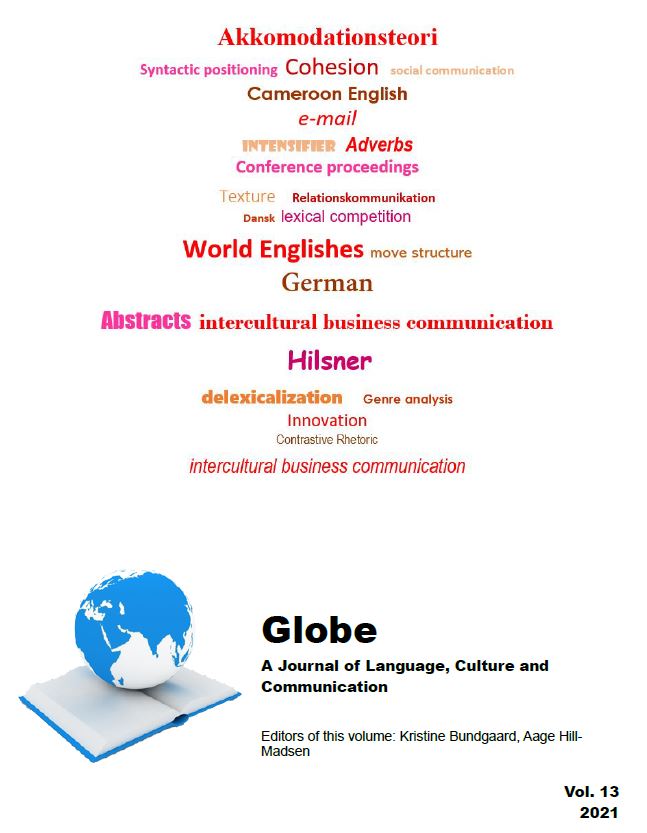German super and intensifiers in social communication
DOI:
https://doi.org/10.5278/ojs.globe.v13i.6727Abstract
This study examines the intensifier super in German with data taken from Das Wortauskunftssystem zur deutschen Sprache in Geschichte und Gegenwart (DWDS, Digitales Wörterbuch der deutschen Sprache, Geyken 2020). We inspect the morphosyntactic and semantic development of super, and aim to explore its delexicalization tendency. In closing, the development of intensifiers in social communication is presented. The results show that German super enjoys morphosyntactic flexibility. The meaning of this versatile intensifier shifts freely among various magnitudes of intensification, from 'more than', 'very', to 'top most', and even has gone lower than the reference point to mean 'actually not good'. German super has advanced itself in terms of linguistic performance and is gradually losing its role as an intensifier. A diachronic inspection of the use of German super attests linguistic revival in that from a rarely used intensifier, super escalates its use in the last decades in German society. Outer world influences have put super through lexical competitions. Reports on general intensifiers reveal the inner linguistic motivation of change that intensifiers own, and sociolinguistic factors such as gender, age and education background all contribute to the variability of intensifiers in social communication.
Downloads
Published
Issue
Section
License
Articles published in Globe: A Journal of Language, Culture and Communication are following the license Creative Commons Attribution-NonCommercial-NoDerivs 3.0 Unported (CC BY-NC-ND 3.0). Authors retain copyright and grant the journal right of first publication with the work simultaneously licensed under a Creative Commons Attribution License: Attribution - NonCommercial - NoDerivs (by-nc-nd). Further information about Creative Commons


